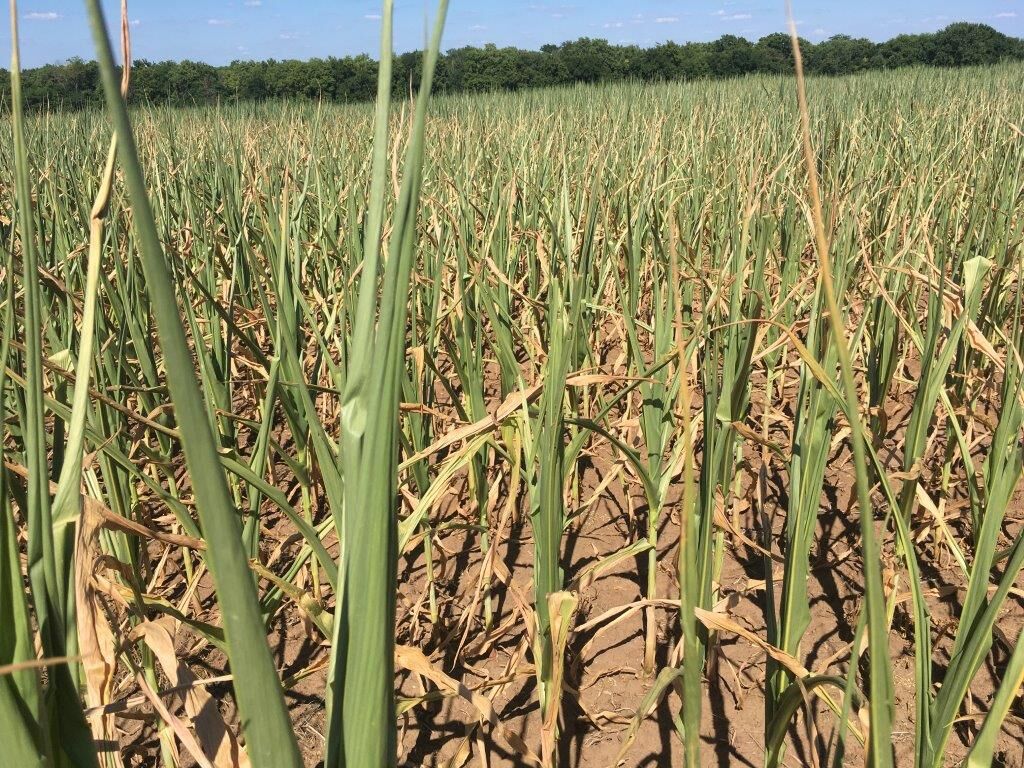“It’s not a good situation” for agriculture in the southern two-thirds of Missouri, where scant rainfall and high temperatures have led to worsening drought, said Pat Guinan, associate extension professor of climatology with University of Missouri Extension.
The ample moisture in northern Missouri ends abruptly where drought conditions begin in central through southern Missouri, Guinan said.
The driest Missouri counties are on the Arkansas border; parts of Howell, Oregon and Ripley counties have received just over an inch of rain in the past eight weeks.
“The drought in southwestern and southern Missouri has been unparalleled in some respects to other droughts we’ve had,” said Tim Schnakenberg, MU Extension agronomist in Stone County. Some producers say they haven’t had worse conditions before in their lifetimes.
“The closest was the 1980 drought that had extended periods of high heat and dry weather,” Schnakenberg said. “Pastures and hayfields are drying up more each day, and farmers and ranchers are scrambling to secure additional hay resources. Corn is being chopped or baled and bagged earlier than most have ever seen.”
Because of the short supply of hay and limited pasture, there are long trailer lines at livestock auctions since cows are being culled, he said. Silage tonnage is running about one-third of normal.
“The first week of June was the last major rain event for most of the Delta region of the state,” said Justin Calhoun, soil and cropping systems specialist at the MU Fisher Delta Research, Extension and Education Center in Portageville.
While most of the ground in the Delta is irrigated, Calhoun said, “under these extreme conditions our irrigation systems are being pushed to the limit.”
Crops that are dryland or in pivot corners look extremely poor to nearly a complete loss, said Calhoun. Much of the corn in these non-irrigated areas never reached silking and completely dried out. Dryland cotton, peanuts and soybean are struggling.
MU Extension has an extensive drought resources page with links to articles, management practices and an impact report form that allows users to inform the National Drought Mitigation Center about local conditions. Guinan urges producers to submit their own drought reports and photos, as the information is “very helpful.”
Visit the MU Extension drought resources page at mizzou.us/DroughtResources.

